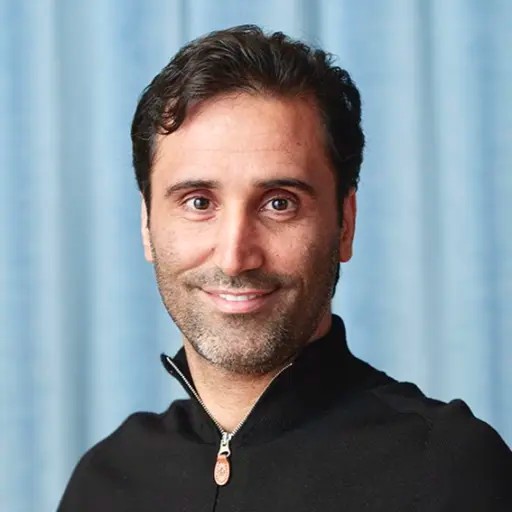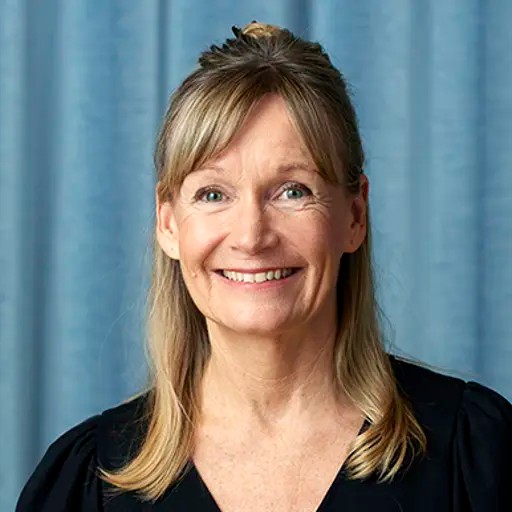
Eating more seafood is one important part of the necessary shift from red meat to other more sustainable protein sources. But for the transition to be sustainable, losses in the supply chain must be reduced. Now, food researchers Ingrid Undeland and Mehdi Abdollahi at Chalmers University of Technology receive a prestigious award for their research on solutions to maximize the utilisation of "blue food."
Ingrid Undeland, Professor, and Mehdi Abdollahi, senior researcher, at the Division of Food and Nutrition Science at Chalmers, receive the international "Bertebos Prize 2024" from The Royal Swedish Agricultural Academy (KSLA) for their progress in research that reduces losses from the seafood value chain.
By engineering and taking an innovative fractionation technology to the next level, they have shown how seafood side streams, such as fish back bones and heads, which today mostly are used for feed production, can be converted to functional food protein ingredients, cold-pressed oil, collagen, or collagen peptides.
"It is an honour for us to receive this prize. For us, it has been important that the research we conduct can be used by society – and now this focus is also highly valued outside academia. It encourages us to continue in the same direction," says Mehdi Abdollahi.
Techniques to enable use of all the raw material
Up to 85 percent of the blue biomass landed each year, globally and in Sweden, ends up as low value bulk products such as animal feed instead of food. The research at Chalmers aims to develop techniques and methods to utilise more than just the fillet from fish, and to use fish species that currently almost entirely go into feed, such as sprat. This involves sorting side streams into different cutting details, preventing rancidity (lipid oxidation), and developing process techniques and biorefinery concepts that enable all the raw material to be converted into high-value ingredients. The innovative fractionation technology plays a crucial role in the latter.
"We were surprised and very happy to receive the 'Bertebos Prize.' For us, it shows that we are on the right track and that our research is relevant to the global challenges today, both nationally and internationally. Of course, we publish scientific articles that demonstrate credibility, but receiving recognition from other parts of society is important to us," says Ingrid Undeland.
Research that benefits society important
An important motivation for both the researchers is research that benefits society. They express the importance of their solutions being commercialized and used by parties that can make a difference and contribute to turning more of our blue raw materials into food. They have also started the company AquaFood, where the research is implemented in various applications for a sustainable food industry.
At the same time, there is much more to be done in the research area of fractionating underutilised seafood raw materials to multiple products.
In the BlueBio project, led by Mehdi Abdollahi, the aim is to create a biorefinery platform, bringing together researchers and entrepreneurs to transform side streams from the industry into food ingredients such as proteins, fish oils, and marine collagen. He also participates in the new project MAREFINE, focusing on refining the extraction of collagen from fish side streams.
Also in Ingrid Undeland's research team, work continues in several projects on the innovative fractionation process, for example within Blue Food – Centre for the Future of Seafood, and within the new project Pelagic 2.0, coordinated by Ingrid.
"In both these projects, there is a major focus on the fish species herring and sprat, which are the heavily underutilised in Sweden. There is tremendous potential in these species considering the large amounts of biomass that are lost from the food system today, but there are also challenges that must be solved, says Ingrid Undeland.
More about Ingrid Undeland's and Mehdi Abdollahi's research
- New dipping solution turns the whole fish into food
- New technology turns the whole fish into food
- The EU-project Waseabi
- The EU-project BlueCC
- Marine food production
- Plant-based food production
About KSLA
- The Royal Swedish Academy of Agriculture and Forestry is a free and independent organization that works with issues of agriculture, horticulture, food, forest and forest products, fishing and aquaculture, the environment, and natural resources.
- KSLA distributes grants from several foundations that promote scientific research and development in the green sector.
Bertebos Prize
- The Bertebos Prize was instituted in 1996 by Brita and Olof Stenström as a means of promoting education and research in the food chain.
Contact
- Associate Professor, Food and Nutrition Science, Life Sciences
- Full Professor, Food and Nutrition Science, Life Sciences

